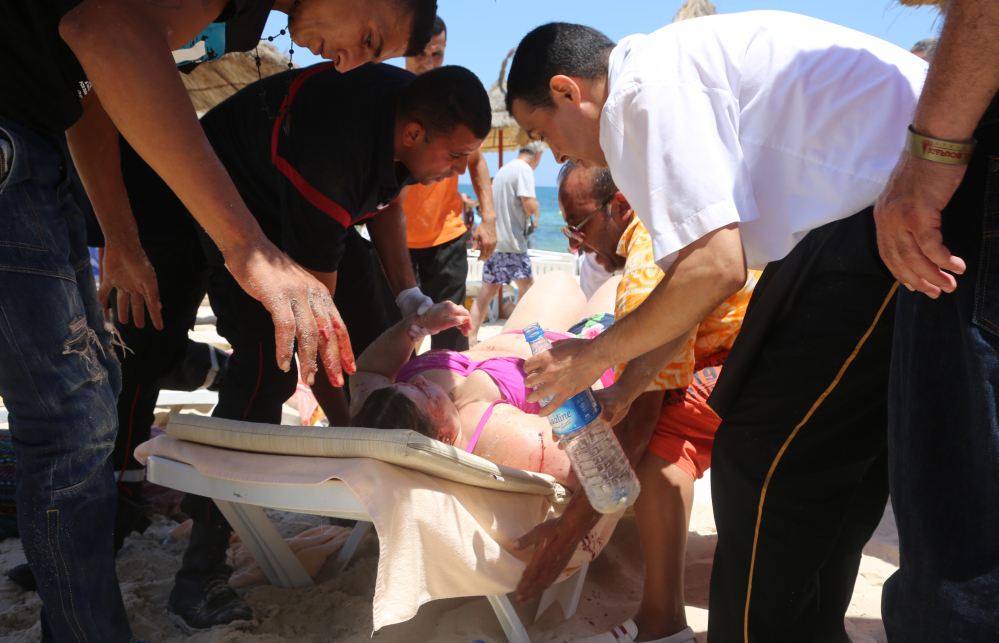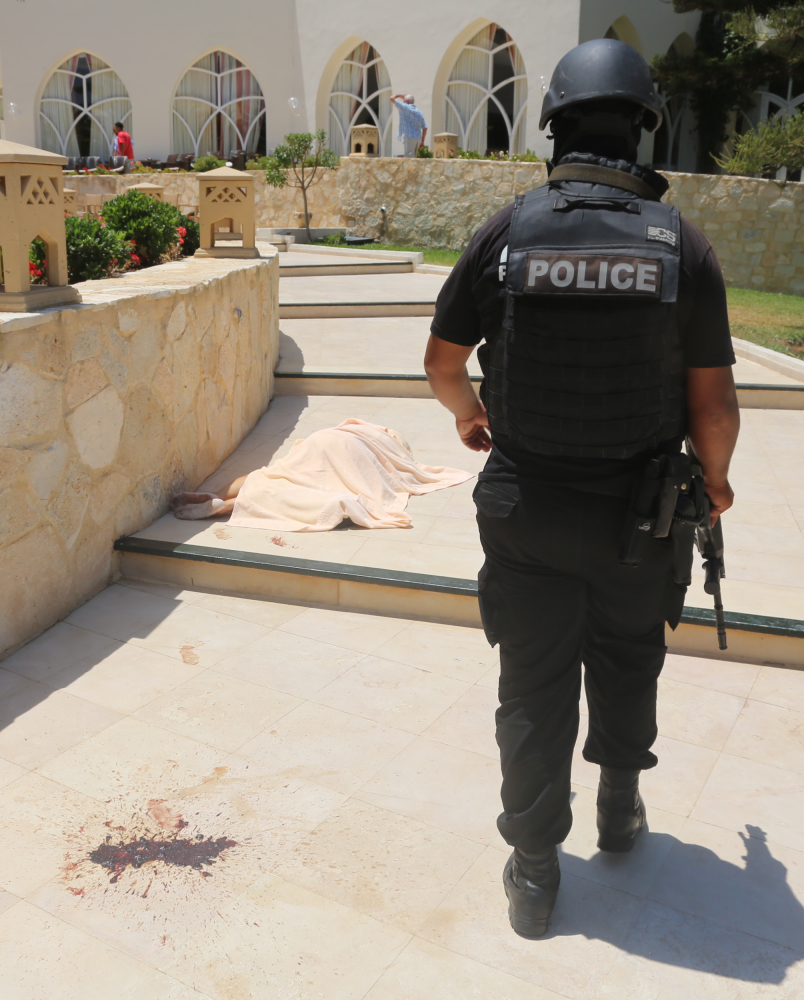BEIRUT — Militants beheaded, bombed and gunned down victims on three continents on Friday, killing over 60 people and raising fears that a global surge of terror strikes could be imminent.
There was no immediate reason to believe the disparate attacks – at a factory in France, a beach resort in Tunisia and a mosque in Kuwait – were connected.
But the three incidents followed an appeal on Tuesday from the Islamic State’s spokesman, Abu Mohammed al-Adnani, for Muslims to mark the holy month of Ramadan by carrying out acts of “jihad.”
“Make Ramadan a month of disasters for the kuffar” or infidels, he said in the audiotaped address, promising followers “tenfold” rewards in heaven if they died in such acts during the holy period, associated by most Muslims with fasting, prayer and peaceful reflection.
The attacks suggested some may have heeded his words.
Shortly before 10 a.m. in the foothills of the Alps in southern France, a man drove a vehicle packed with gas canisters into a U.S.-owned factory on the edge of the quaint town of Saint-Quentin-Fallavier. The car failed to explode, but after police arrived at the premises they found a severed head and a flag bearing Arabic inscriptions.
The exact circumstances of the gruesome killing remain unclear. A man later arrested in connection with the incident had been on a watch list of potential Islamist radicals until 2008, according to French media reports, which identified him as Yassin Sahli.
France TV quoted an unidentified source connected to the investigation as saying the decapitated man was the employer of the suspect at the Air Products factory.
Minutes later and 3,000 miles away, a man wearing a suicide belt walked into a Shiite mosque in Kuwait City and detonated himself among worshippers gathered for Friday prayers, killing 25 and injuring dozens more.
The Islamic State swiftly claimed responsibility for that attack, saying in a statement circulated by social media accounts that one of its members, Abu Suleiman al-Mowahid, had targeted the mosque because it had been used to try to convert Sunni Muslims to the Shiite branch of Islam.
Two hours passed before a gunman burst into a Mediterranean beach resort in the Tunisian town of Sousse, randomly opening fire on sunbathers lounging under beach umbrellas, and killing 37. “A state of panic,” said Tunisian journalist Moez Ben Gharbiya, describing the scene from the seaside town, a popular spot for European tourists about 90 miles south of Tunis.
Tunisian police killed the assailant.
The massacre was another blow to the country’s vital tourism industry, three months after 22 people were gunned down at the world-famous Bardo museum in the capital, Tunis.
A tourist from Dublin, Elizabeth O’Brien, told Ireland’s RTE radio that she momentarily mistook the sound of gun shots for fireworks. Then she raced into the sea to grab her two sons.
“As I was running towards the hotel, the waiters and security on the beach started saying, ‘run, run, run,’ ” she said.
Though it is too early to say whether the Islamic State was connected to all the attacks, their timing and geographical scope will play into the group’s narrative that it is posing an ever greater threat to global security, analysts said.
“For ISIS, terror is a strategy, a way to keep conveying a sense of expansion,” said Emile Hokayem, an analyst with the London-based International Institute for Strategic Studies, using an acronym for the group. “This is not the movement that’s on its last legs. It’s still there, seeking to impose and shape the agenda and be at the center of conversation.”
World leaders drew a link between the incidents, with governments in Europe holding emergency meetings to address the risk of further violence.
French President Francois Hollande placed security agencies on high alert in the southeastern region of France.
Copy the Story LinkSend questions/comments to the editors.




Success. Please wait for the page to reload. If the page does not reload within 5 seconds, please refresh the page.
Enter your email and password to access comments.
Hi, to comment on stories you must . This profile is in addition to your subscription and website login.
Already have a commenting profile? .
Invalid username/password.
Please check your email to confirm and complete your registration.
Only subscribers are eligible to post comments. Please subscribe or login first for digital access. Here’s why.
Use the form below to reset your password. When you've submitted your account email, we will send an email with a reset code.